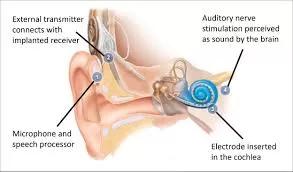In a groundbreaking revelation challenging conventional wisdom, a recent study suggests that exposing deaf children to sign language both before and after cochlear implantation could have positive effects on their language development and cognitive abilities. The study, led by Audrey Delcenserie, a Ph.D. student at Université de Montréal, challenges the prevailing belief that sign language exposure impedes the learning of spoken language post-implantation.
Published in the journal Developmental Science, the study compared the language abilities of deaf children who had been exposed to sign language with those who had not, as well as with children with normal hearing. Astonishingly, the results unveiled a host of benefits associated with early sign language exposure, including improved spoken vocabulary, morphological and phonological awareness, phonological memory, and expressive grammar.
Audrey Delcenserie emphasized the significance of these findings, urging parents to consider exposing their deaf children to sign language, even if they are candidates for cochlear implantation. Such exposure not only safeguards against language deprivation but also counteracts the negative effects of delayed language acquisition, fostering robust language development and cognitive skills.
The study’s findings offer a stark departure from the traditional approach advising parents to eschew sign language in favor of exclusive focus on spoken language post-cochlear implantation. Delcenserie elucidated that early exposure to sign language activates innate neurocognitive systems responsible for language acquisition, with the optimal time for such activation being within the first 12 months of life.
Moreover, the benefits of sign language exposure extend beyond language development, conferring cognitive and social advantages even after cochlear implantation. Delcenserie highlighted the concept of bimodal bilingualism, wherein children proficient in both sign and spoken languages exhibit enhanced executive functions, attributable to the demands of language switching.
The implications of this study are profound, challenging long-standing perceptions and advocating for a more inclusive and holistic approach to language development in deaf children. As society continues to evolve, embracing diversity and embracing the unique needs of every child, studies like this serve as beacons of progress, illuminating pathways towards greater inclusivity and empowerment for all.












